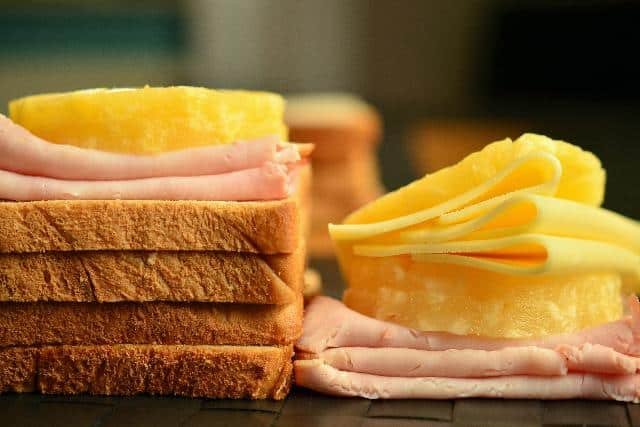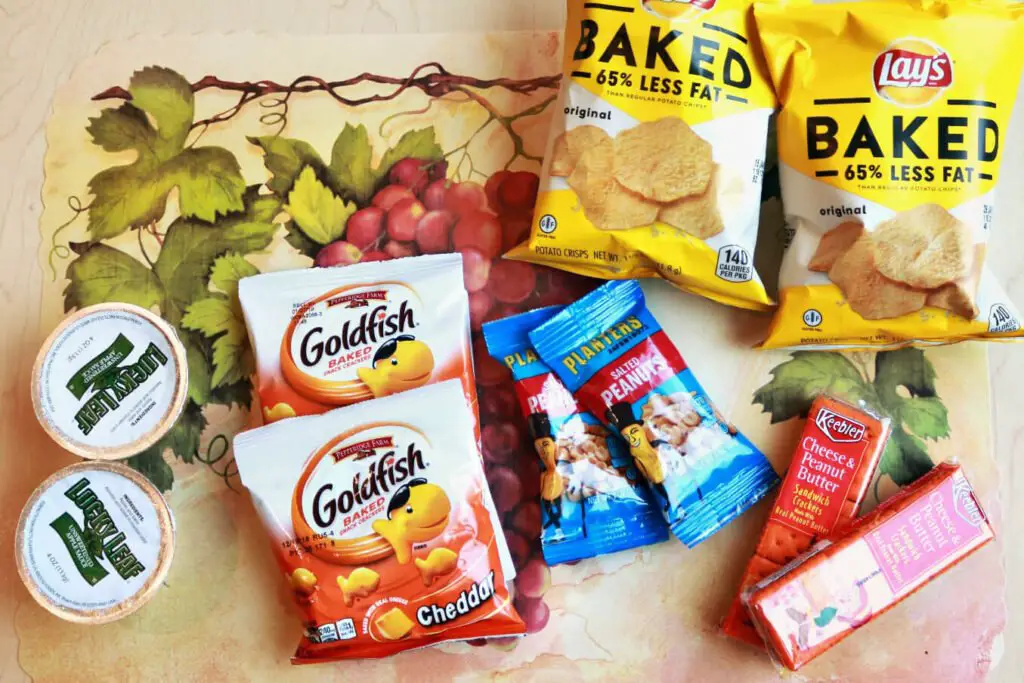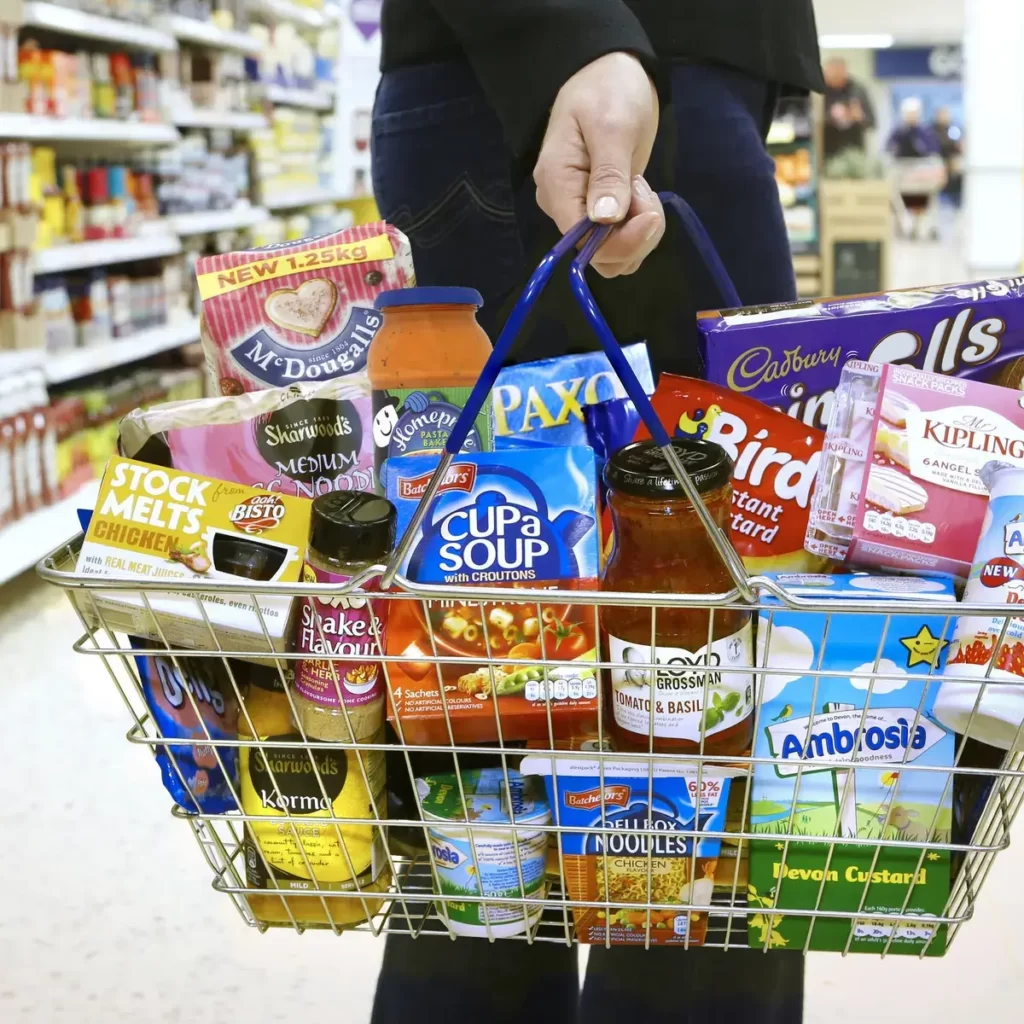Last Updated on August 6, 2023 By Emma W. Thomas
Not necessarily true. Processed and low-fat foods can be low in calories, but many contain added sugars, sodium, or fillers that increase the calorie content. It’s essential to read labels and choose whole, nutrient-dense foods for a balanced diet and better calorie control.
Processed And Low-Fat Foods Are Typically Low In Calories – Is It True?
When it comes to weight loss and maintaining a healthy diet, many people often believe that opting for processed or low-fat food products will automatically lead to consuming fewer calories. However, is this belief really true? Let’s dive into the world of processed and low-fat foods to determine if they are indeed low in calories.
- Understanding Processed Foods:
Processed foods refer to items that undergo various modifications, such as canning, freezing, or cooking, to prolong their shelf life and enhance their taste. Frequently consumed processed foods include canned vegetables, packaged snacks, deli meats, and sugary cereals. Though these products may offer convenience, the reality is that they often contain hidden additives, preservatives, and added sugars to maintain the flavor and extend their shelf life. - The Hidden Calories:
While processed foods may claim to be low in calories, it’s crucial to read the nutrition labels to gain a better understanding of what they truly contain. Many processed foods are loaded with hidden calories in the form of added sugars, unhealthy fats, and sodium. These empty calories can lead to weight gain and have detrimental effects on overall health. - Low-Fat Foods and Calorie Content:
Low-fat foods have gained popularity over the years due to the belief that they are healthier and lower in calories. However, the truth is that manufacturers often compensate for the reduced fat content by adding extra sugar or artificial additives to enhance taste and texture. These additions can significantly increase the calorie count, undermining the original intention of consuming low-fat foods. - Focus on Nutrient Density:
Rather than solely relying on processed or low-fat food products, it’s essential to focus on nutrient-dense options. Nutrient-dense foods provide a higher concentration of essential vitamins, minerals, and fiber without being excessively high in calories. Fresh fruits and vegetables, lean proteins, whole grains, and healthy fats should form the foundation of a balanced and nourishing diet. - Read Labels Carefully:
When choosing processed or low-fat foods, it’s crucial to become a savvy label reader. Pay close attention to the ingredients list, nutrition information, and serving sizes. Look for items that have minimal added sugars, unhealthy fats, and sodium. Moreover, be mindful of portion sizes as the actual number of calories consumed can be higher than anticipated if the serving sizes are not properly controlled.
Why Should We Avoid Processed Foods?

The following are mere facts of what may actually happen and the potential risks of consuming processed foods-
1. It’s Addictive
Have you ever craved a packet of chips or a pack of biscuits? Did you remember how satisfied you were after you consumed the entire packet? You couldn’t honestly stop, or could you, after just a couple of chips or biscuits? See! It’s extremely addictive. Processed foods, which we have come to love over the years, are designed to stimulate the dopamine centers of our brain, making us feel good. If you are having a bad day, binge-eating a packet of your favorite cookies makes you feel much better. You become dependent, and resultantly you crave more of them in the future.
2. It Lacks Nutritional Values
Have you ever noticed the nutritional label on the back of the packet of your favorite processed food? If you do, you will either see it has none, or it has added vitamins and minerals to add a pinch of nutritional value to them. Processing foods strip the natural nutritional values available to them in their raw state.
3. Contains Too Much Sugar And Sodium
Even processed foods that are low-fat in nature contain extremely alarming amounts of sugar and/or sodium. These cause our beloved processed food to taste as good as it does but seriously affect our health over time. Consuming such processed food leads us to develop diseases like- obesity, high blood pressure, various heart diseases, and diabetes, to name a few.
4. Filled With Artificial Ingredients
Most of the processed, if not all of them, use an alarming number of additives and artificial ingredients, including preservatives. These additive ingredients help give these kinds of processed food their signature colors, textures, flavors, etc., which we have come to like over the years. Surely these additive ingredients cannot be good for our health!
5. It’s Quicker To Digest
You would normally ask, “Why is that a bad thing” because our bodies need half as many calories as we would require to digest processed foods. Processed foods are always much easier to digest than unprocessed, whole food. If you take into consideration that this processed food has emptier calories and also that it requires half the calories needed to digest unprocessed foods, we stay in a state of caloric surplus. It is directly aiding us in the process of gaining quite a few pounds.
What Happens When We Have A Low-Fat Diet?

As mentioned above, processed food is irrelevant the fact of it is low-fat or not is detrimental to your health.
What About Low-Fat Foods? What If We Wish To Maintain A Low-Fat Diet?
Too much of anything is not good for you. If you take too much fat into your diet, you will end up putting on quite a good amount of weight. Simultaneously, just consuming low-fat foods or maintaining a low-fat diet dieting, in essence, restricting yourself from fat-rich food is bad for you.
Why? – You Ask.
It is essential that you get the essential fatty acids obtained from fat-rich foods, or else you would see the following symptoms;
- Dry, scaly, flaky, dull, or bumpy skin.
- Dry, brittle, or lackluster hair.
- Soft, frying, splitting, or brittle fingernails.
- Night blindness.
- Confusion and disorientation.
- Depression.
- Fatty food cravings.
Ever since the world started believing that fat was bad for you, the demand for processed food has shot up many times. Resulting in a fatter and sicker society filled with health issues. Lately, all kinds of fat-rich healthy foods have been returned to the status of “Super-foods”.
Here Is A List Of Incredibly Healthy And Nutritional Healthy Foods Rich In Fats.
| Avocados | It is rich in fats and calories, even then it has been found that people who consume avocados generally tend to weigh lighter and are overall fitter than people who don’t. |
| Cheese | It is rich in dairy fat and powerful fatty acids. It has all types of health benefits, including reducing the risk of type 2 diabetes. A single slice of cheese has the same nutritional value as that of a glass of milk. |
| Dark Chocolate (at least 70% cocoa) | It is very high in medium-chain fatty acids, helping in reducing appetite and resulting in increased fat-burning abilities. It provides innumerable health benefits. |
| Whole eggs | In spite of being high in fat and cholesterol, they are extremely healthy and filled with nutrients. |
| Fatty Fish | Fishes like salmon, mackerel, herring, sardines, etc., are rich in fat and are loaded with important nutrients. They have rich amounts of Omega-3 fatty acids, which our body can’t produce on its own. Consuming fatty fishes improve health and reduce the risk of diseases. |
| Nuts | Rich in healthy fats, proteins, vitamin E, and magnesium – Nuts are incredibly good for our health. |
| Chia Seeds | Though not considered a traditional fatty food, it is loaded with a high quantity of healthy fats, fibers, and minerals. It is very good for our health. |
| Extra Virgin Olive Oil | It is easily the best oil suitable for consumption, which improves our overall health. Besides, this is incredibly effective at improving our cardiovascular health and has a lot of many powerful health benefits. |
| Coconuts and Coconut Oil | Be cautious about choosing only the real ones, not the low fat and the ones loaded with sugar. They have the same nutrients as that of a high-fat dairy product loaded with probiotic bacteria. |
| Full-Fat Yogurt | Be cautious about choosing only the real ones, not the low-fat and the ones loaded with sugar. They have the same nutrients as that of a high-fat dairy product loaded with probiotic bacteria. |
List Of Low-Fat, Processed Food Extremely Bad For You;

- Low-fat breakfast cereal – 29% of the total calories are sugar.
- Low-fat flavored coffee drink – 57% of total calories is consisting of sugar.
- Low-fat Flavored Yogurt – contains too much sugar to qualify as a healthy and nutritious choice. It almost contains 50 grams of sugar per 240 grams of serving.
- Low-fat Salad Dressing – Has no health benefits but contains sugar and preservatives.
- Reduced-fat peanut butter – Normally, peanut butter has only peanuts and salt, but reduced-fat peanut butter contains sugar and high-fructose corn syrup.
- Low-fat Muffin – 42 % of the total calorie is sugar and has a high glycemic index inducing hunger and overeating.
- Low-fat Frozen Yogurt – Has as much, if not more quantity of sugar as ice cream.
- Low-fat Cookies – they have a whopping 55% of their total calorie in the form of sugar.
- Low-fat Cereal Bars – High in sugar while being low in protein.
- Low-fat Sandwich Spread – It has high amounts of processed vegetable oil, often containing trans fats.
Conclusion-
The processed foods have been around since ancient times. However, they became more common after World War II. These food products include canned goods, frozen foods, packaged snacks, fast foods, convenience foods, ready-to-eat cereals, and others. They are usually low in calories but high in sodium content. Some people may find them convenient while some may not.
We hope that you are more aware of what you put in your mouth. We recommend indulging in whole food, which is rich in good fats for your better health. Every time you pick up a packet of processed, low-fat food, we assume you will check the label and remember our advice and put it down and go for something more nutritious and filling, even if it has fat.
References:
https://www.houstonmethodist.org/blog/articles/2020/jan/dont-be-fooled-by-low-fat-foods/
https://www.quora.com/True-or-false-Processed-low-fat-foods-are-typically-low-in-calories
Emma is a graduate of Domestic Science or Family and Consumer Sciences (Home Economics) from the University of Wisconsin. She has 7 years of experience Working with the strategic section of BestBuy and now writing full-time for Homeeon.
From Managing the Home, Interiors, Cleaning, and Exteriors to Gardening and everything about Making A Home Liveable – is her passion and this Homeeon is the result of this.
Emma loves decorating her home with the best stuff found online. She cares about quality over anything and writes reviews about them here in Homeeon. Get in touch with her over Pinterest.
Keep reading her blogs.